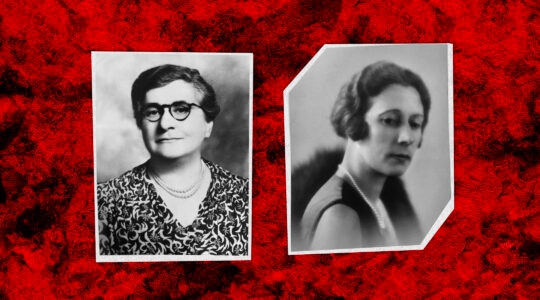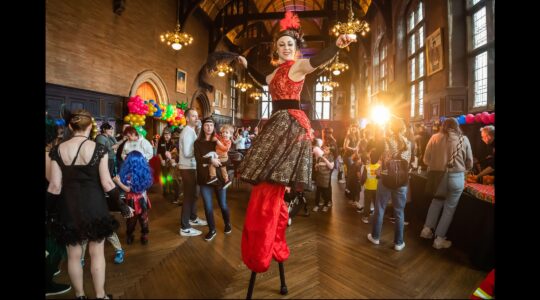As part of Tablet’s "Jewish Body" week, Jo-Ann Mort writes about her decision to break the tattoo taboo during a trip to Israel last summer:
I remember a moment from my first trip to Israel 29 years ago. I was waiting for a friend at the entrance to Beit Hatfutsot, a museum on the Tel Aviv University campus. It was during a conference convened for Holocaust survivors, and as I watched older survivors flow out of the building, I glanced at the occasional uncovered arm to see the tattooed numbers there, remnants of their Holocaust experience. It was a powerful vision for a first-time visitor to Israel, one that underscored triumph over adversity and the human will to survive along with the need for the country as a safe haven for the Jews.
But now, as a regular visitor to Israel, I see a different country, especially in Tel Aviv, a city that has pioneered a free-flowing hedonistic lifestyle that promotes free expression in art and fashion. The campus of Tel Aviv University offers a parade of inked bodies. Which is partly why, though I’m not an Israeli, I decided to join Israel’s tattooed ranks during a visit this summer. But, unlike the bulk of Tel Aviv’s inked masses, I’d recently survived a harrowing ordeal, and a tattoo seemed as good a way as any to mark it.
At a related event in Washington sponsored by Nextbook, Tablet’s parent company, Israeli tattoo artist Ami James discussed his craft. Suzane Kurtz has the story in The Washington Jewish Week:
His body is nearly fully covered with tattoos, and he’s often inked hamsas and Stars of David for others.
Yet, Israeli-born tattoo artist Ami James, star of TLC’s reality TV show Miami Ink says he is uncomfortable with Jewish-themed body art.
Exploring the subject of "Tattoos & Taboos," at Sixth & I Historic Synagogue in the District on Sunday evening, James addressed an audience of 250, as the synagogue concluded its series, "Jewish Body Week: Exploring What It Means to Have a Jewish Body in the 21st Century."
Fielding questions from fellow tattooed Jew Todd Weinberger, creative director for Inked magazine, James discussed his childhood in Israel — "when no one had tattoos" — his Jewish mother’s outrage at his first tattoo at age 15, his aversion to drawing biblical ink, and stated that, for him, tattoos are an expression of art, not Jewish identity.
"If I could carry a painting on my back all day, I would," he said.
And, although he has tattooed others with Jewish symbols, he stops short of inking biblical verses on fellow Jews, referring to the biblical injunction that forbids making "any marks on yourselves."
Judaism "does say, ‘you shall not’ [mark on yourself], and at the end of the day, I don’t want to be the one doing it. It’s kind of a slap in the face to the religion," he said.
Jeez, what’s the point of being a Jewish tattoo artist if you can’t shake the guilt?
JTA has documented Jewish history in real-time for over a century. Keep our journalism strong by joining us in supporting independent, award-winning reporting.





